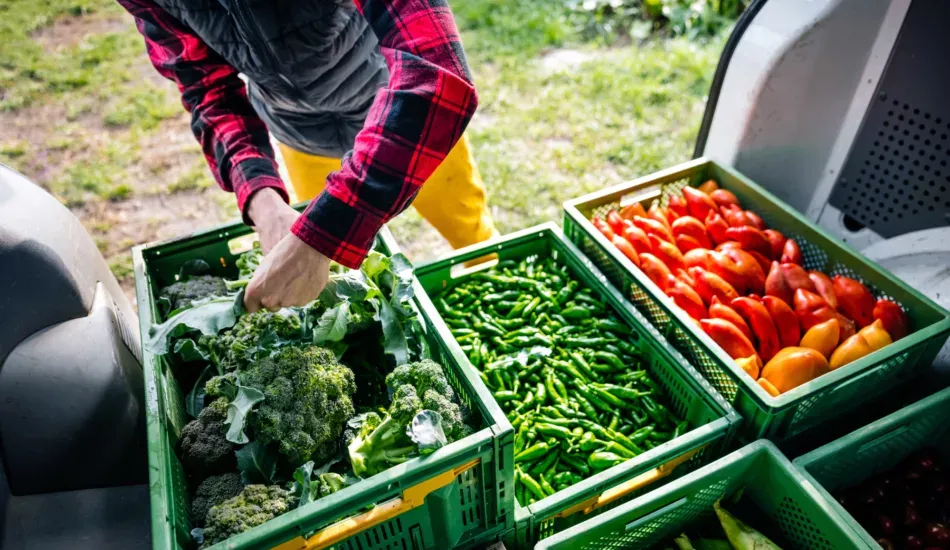More farmers are selling their vegetables, fruits or eggs on their own property. The number of farms selling through such a short chain was 9 percent higher in 2023 than in 2020. Revenues accounted for some 2.2 million euros.

That concludes researchers at Wageningen Economic Research (WER). The department of Wageningen University & Research is engaged in market and chain research, among other things. In the research, the short chain means products sold directly by the farmer or through no more than one intermediary to consumers.
More farmers
.The proportion of short-chain farms has increased in every province, and eggs are the largest sales market. Farms selling through short chain are more often organic. Research indicates that younger business owners are more likely to sell through short chains. Farm owners under the age of 35 are about 10 percent more likely to sell on their own property than entrepreneurs over the age of 66.
More sales
.The total revenue through short-chain sales is estimated at about 2.2 billion euros and is around 6 percent of agricultural production value in 2023. This makes the revenue 50 percent higher than in 2020.
These companies are already doing it
.Several agricultural companies in the Netherlands already sell through such a short chain. At restaurant Vaderland, products from its own vegetable garden are transformed into culinary delights. "In the yard we grow various vegetables and herbs. These form the basis of the dishes we serve. We aim to eat year-round from this place," told owner Lianne van Genugten previously to Change Inc.. Homeland also features a farm store. There, fresh seasonal vegetables are sold with accompanying recipes and homemade products such as quiche and cake. For cheese, bread and other products, Fatherland works with area farmers. "We proclaim the same message as in the restaurant, namely: it can be different and it's fun too. The setting of the store is just a little more approachable."
Another example is food forest Lingehout. There, affiliated members can harvest their own food. Besides being fun, it is also educational, co-founder Gerdien Dijkstra observes. "People know exactly where their food comes from, how it grows and what is involved. In addition, food from the food forest can add variations to the menu. There is much more edible than people think."
More sustainable?
When it comes to the sustainability of production chains, there is no one-size-fits-all answer as to whether short or long chains are more sustainable. Short production chains generally have a smaller carbon footprint because products do not have to come from as far away. In addition, short chains often have a positive impact on the local economy and provide transparency. On the other hand, long production chains can sometimes be more efficient because of the way the chain is structured. Moreover, long production chains can contribute to the development of international trade and economic growth.
Source: Change Inc.